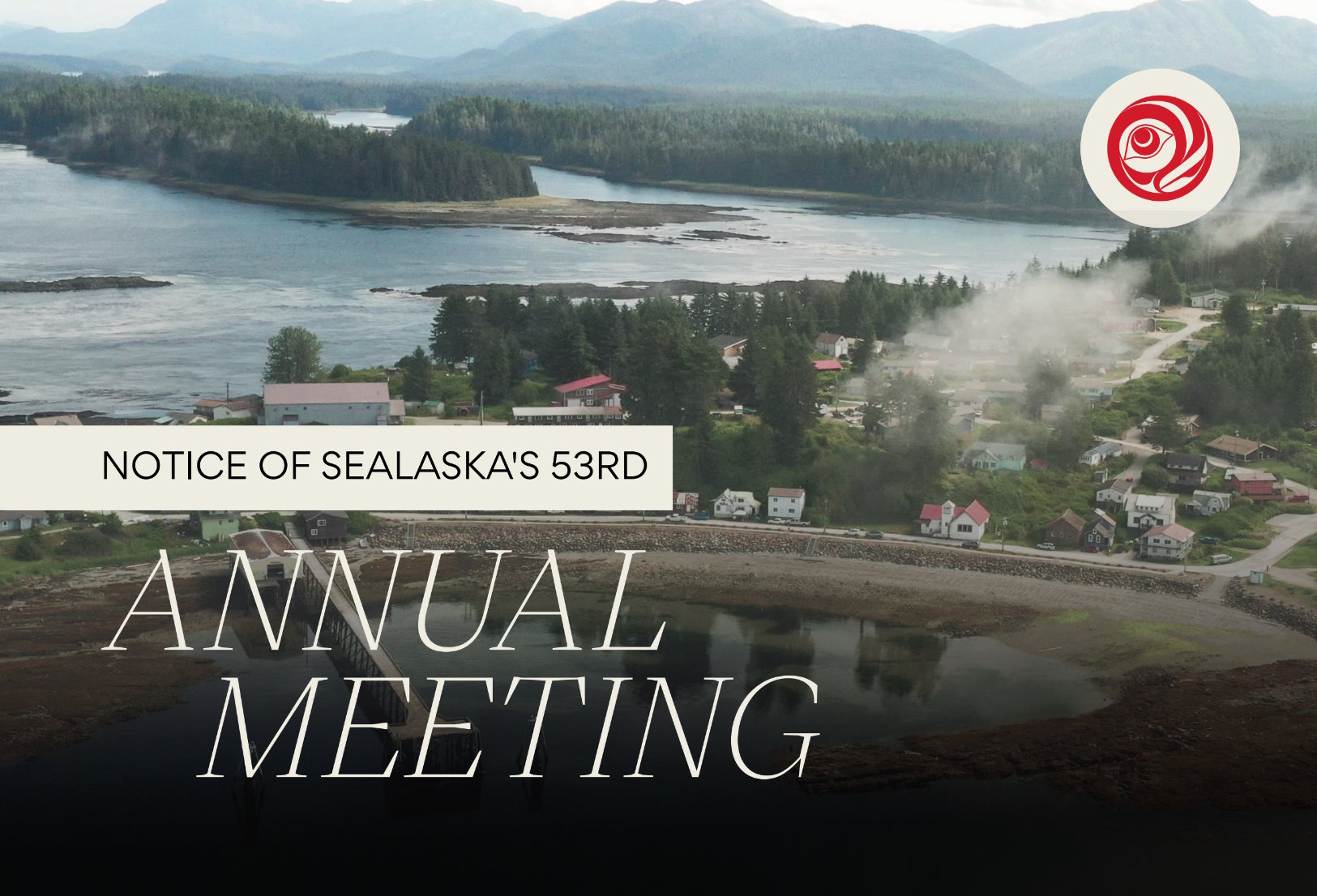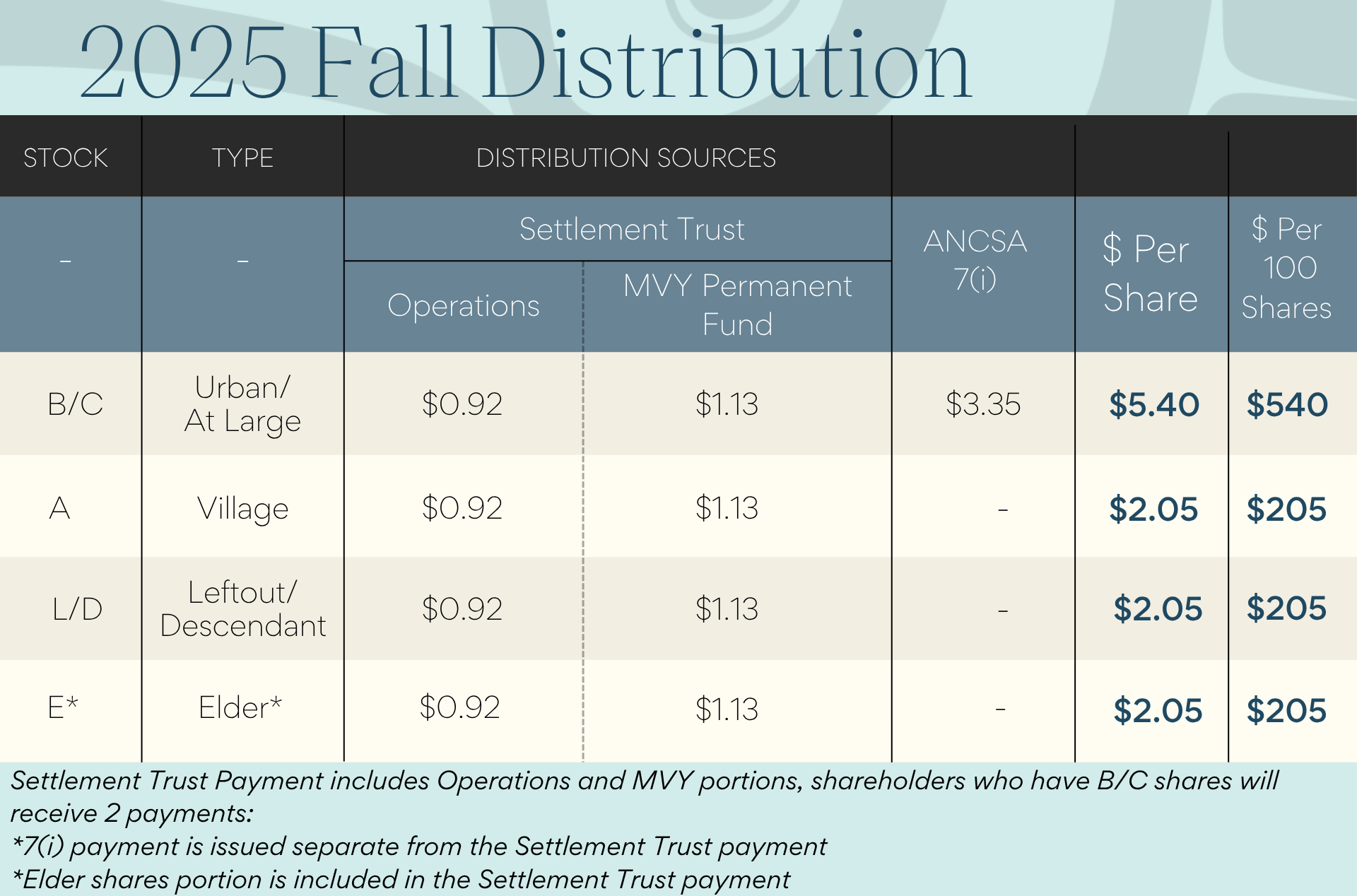Sealaska Statement on the CARES Act
Saturday, April 18, 2020
The coronavirus is exposing longstanding vulnerabilities that our Alaska Native communities have faced for years. Many of our people are more at risk because of factors related to high rates of diabetes and heart disease. These conditions faced by Alaska Natives — many living in remote, rugged environments with limited infrastructure and services, including healthcare — further exacerbate the risk exposure to the virus.
Sealaska, like other Alaska Native corporations, is included in the $8 billion funding set aside for Native people. The definition used in the Coronavirus Aid, Relief and Economic Security (CARES) Act includes Alaska Native corporations. (See below for more details about the language.) We trust that this $8 billion in funding will be distributed to equitably serve Native American needs across the country, and we will do our part to ensure that this happens, in coordination with our Alaskan tribes.
We are currently working in close coordination with our tribes to support our Native people and Native communities to navigate this crisis. CARES Act funding will further these efforts. Sealaska and other Alaska Native corporations will be involved as a vehicle to support Native people, as we have existing structures in place to benefit our communities.
As the owners of our traditional lands in Alaska, Alaska Native corporations have long been recognized as appropriate entities to receive and distribute federal funding provided for the benefit of tribes. We have supported the social, economic and cultural well-being of our Native people, side-by-side with our tribes in Alaska, for decades. Prior to the CARES Act being introduced, Sealaska committed to making $1 million available to help with immediate COVID-19 relief for shareholder families and neighbors. As part of that, we are distributing $10,000 to each of the 19 federally recognized tribes in Southeast Alaska to help their communities respond to the crisis. Another part of that commitment involves a total of $175,000 of corporate funding to Central Council of the Tlingit & Haida Indian Tribes of Alaska to support their efforts to provide emergency services to our tribal citizens. All of this is separate from any CARES Act funding Sealaska may receive for distribution to Alaska Natives.
The most important thing we can do now is to work closely across all of our Alaska Native organizations and communities to plan how the CARES Act funding will help our Native people. Sealaska, like all Alaska Native corporations and tribes, must apply for funding that will help our communities. We have been in contact with the tribes and village corporations in our region to ensure that they are also submitting their applications.
We support relief funding for all vulnerable populations, particularly indigenous communities across the nation. We applaud Congress for taking the crucial step to offer aid in this time of profound crisis.
We hope that all of our shareholders, tribal citizens and communities stay safe and we will continue to do our part to help during this difficult time.
For background:
The definition in the CARES Act uses Title 25 U.S.C. Section 5304(e) of the Indian Self-Determination and Education Assistance Act:
“‘Indian tribe’ means any Indian tribe, band, nation, or other organized group or community, including any Alaska Native village or regional or village corporation as defined in or established pursuant to the Alaska Native Claims Settlement Act (43 U.S.C. 1601 et seq.) which is recognized as eligible for the special programs and services provided by the United States to Indians because of their status as Indians.”
This definition and others have been used in federal Indian law more than 100 times to include Alaska Native corporations as tribes or tribal governments for purposes of specific federal programs established to benefit American Indian and Alaska Native people. Additionally, many federal laws include Alaska Native corporation lands as tribal lands or Indian lands for purposes of certain programs established for the protection and preservation of Native lands, as well as for economic development opportunities. This is well established.
Unlike Lower 48 tribes, in Alaska the federally recognized tribes and Alaska Native corporations must work together to meet the economic, social and cultural needs of our Native people in Alaska. We share this responsibility, as Congress addressed Alaska Native settlements differently in Alaska.
Latest News
Notice of Sealaska's 53rd Annual Meeting of Shareholders
Pinned - Posted 2/12/2026The 2026 Sealaska Annual Meeting of Shareholders will be held on Saturday, June 27, in Angoon, Alaska. This year’s meeting will take place at the Angoon Elementary Gym, located at 500 Big Dog Salmon Road, Angoon, AK 99820.
Sealaska Welcomes Madeline Soboleff Levy
Posted 2/7/2026Sealaska welcomes Madeline Soboleff Levy as our new Vice President of Policy and Corporate Affairs.
Online Notary Service for Stock Wills
Posted 1/28/2026Sealaska is pleased to welcome Heather Shá xat k’ei Gurko
Posted 12/17/2025Sealaska is pleased to welcome Heather Shá xat k’ei Gurko as our new Director of Shareholder Communications.














